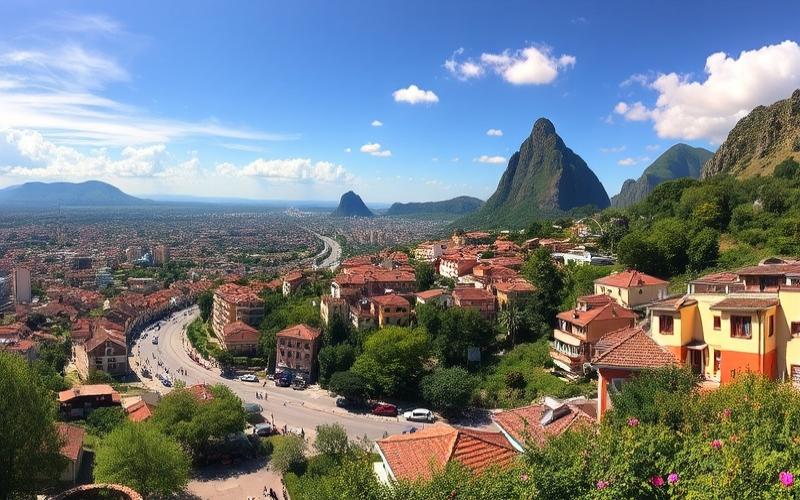
 Published on and written by Cyril Jarnias
Published on and written by Cyril Jarnias
The Brazilian real estate market is attracting more and more foreign investors, drawn by the opportunities offered by Latin America’s largest economy. However, before diving into property acquisition in the land of carnival and soccer, it’s crucial to thoroughly understand the legal and regulatory framework governing the sector. Here’s an overview of the key aspects to know for investing confidently in Brazilian real estate.
A Market Open to Foreign Investors
Good news for international investors: Brazil allows foreigners to acquire real estate properties within its territory. Unlike some countries that impose restrictions, the Brazilian real estate market is relatively open to non-resident buyers. However, some specific rules apply:
- Foreigners can freely purchase properties in urban areas
- Acquisition of rural land is subject to certain restrictions and generally requires prior authorization
- Purchases in border areas (within 150 km of the border) are also subject to authorization from the National Defense Council
It’s important to note that foreigners enjoy the same rights as Brazilians regarding real estate ownership once the acquisition is completed. However, it’s highly recommended to engage a local specialized attorney to ensure the transaction complies with current regulations.
The Legal Framework of Brazilian Real Estate: What You Need to Know
The real estate sector in Brazil is governed by a set of laws and regulations aimed at overseeing transactions and protecting the rights of owners and tenants. Among the most important texts are:
Law 10.406/2002 (Brazilian Civil Code): It defines the fundamental principles of property rights and real estate contracts.
Law 8.245/1991 (Lease Law): It regulates the relationships between landlords and tenants, defining the rights and obligations of each party.
Law 4.591/1964 (Condominium Law): It governs the operation of condominiums and buildings under construction.
Law 6.766/1979 (Urban Subdivision Law): It regulates the division of urban land and subdivision projects.
These laws are supplemented by numerous decrees and local regulations that may vary by state and municipality. Therefore, it’s essential to thoroughly research the specificities of the region where you wish to invest.
Brazilian Real Estate Taxation: A Complex System to Master
The Brazilian tax system is known for its complexity, and the real estate sector is no exception. Here are the main taxes and fees to know:
ITBI (Tax on Transfer of Real Estate): This is equivalent to transfer taxes in France. The rate varies by municipality but generally ranges between 2% and 4% of the property value.
IPTU (Urban Property and Land Tax): This is the Brazilian property tax, paid annually by the owner. Its amount depends on the property value and location.
Tax on rental income: Rental income is subject to income tax, with progressive rates ranging from 0% to 27.5%.
Capital gains tax: When selling the property, a capital gains tax applies, typically at a rate of 15%.
It’s important to note that Brazil has signed tax treaties with many countries, including France, to avoid double taxation. Specialized tax advice is highly recommended to optimize your tax situation.
Property Owners’ Rights: Finding the Right Balance
Brazilian law grants significant protection to property owners while ensuring balance with tenants’ rights. Among the main rights of property owners are:
- The right to use, enjoy, and freely dispose of one’s property
- The right to collect rent and adjust it according to contract terms
- The right to reclaim the property in case of rent non-payment or contract violation
However, these rights come with obligations, particularly regarding property maintenance and compliance with safety and habitability standards. In case of disputes with a tenant, Brazilian courts tend to favor mediation before considering eviction.
Regulatory Developments: A Sector in Constant Evolution
The regulatory framework for real estate in Brazil regularly evolves to adapt to new market realities. Among recent or upcoming changes, we can note:
Digitalization of procedures: The Brazilian government has launched several initiatives to simplify and digitize real estate-related procedures, particularly notarial deed registration.
Strengthening of environmental standards: New regulations aim to promote sustainable construction and building energy efficiency.
Regulation of short-term rental platforms: Several major Brazilian cities are considering implementing specific rules to regulate Airbnb-type rentals.
Real estate credit reform: Discussions are underway to facilitate access to real estate credit and stimulate the market.
These developments highlight the importance of staying informed and surrounding yourself with competent professionals to navigate the Brazilian regulatory landscape.
Good to know:
The Brazilian real estate market offers great opportunities for foreign investors but requires a good understanding of the legal and tax framework. Support from local professionals is highly recommended to secure your investment.
Conclusion: A Promising Market That Requires a Well-Informed Approach
Brazilian real estate presents attractive potential for foreign investors, with a dynamic market and interesting growth prospects. However, the complexity of the regulatory and tax framework requires a cautious and well-informed approach.
To succeed in real estate investment in Brazil, it’s crucial to:
- Thoroughly research the local specificities of the target market
- Surround yourself with competent professionals (attorney, notary, real estate agent)
- Anticipate the tax aspects of the investment
- Stay attentive to regulatory developments
With proper preparation and adequate support, real estate investment in Brazil can prove to be an interesting opportunity for portfolio diversification and long-term returns.
Disclaimer: The information provided on this website is for informational purposes only and does not constitute financial, legal, or professional advice. We encourage you to consult qualified experts before making any investment, real estate, or expatriation decisions. Although we strive to maintain up-to-date and accurate information, we do not guarantee the completeness, accuracy, or timeliness of the proposed content. As investment and expatriation involve risks, we disclaim any liability for potential losses or damages arising from the use of this site. Your use of this site confirms your acceptance of these terms and your understanding of the associated risks.






















































